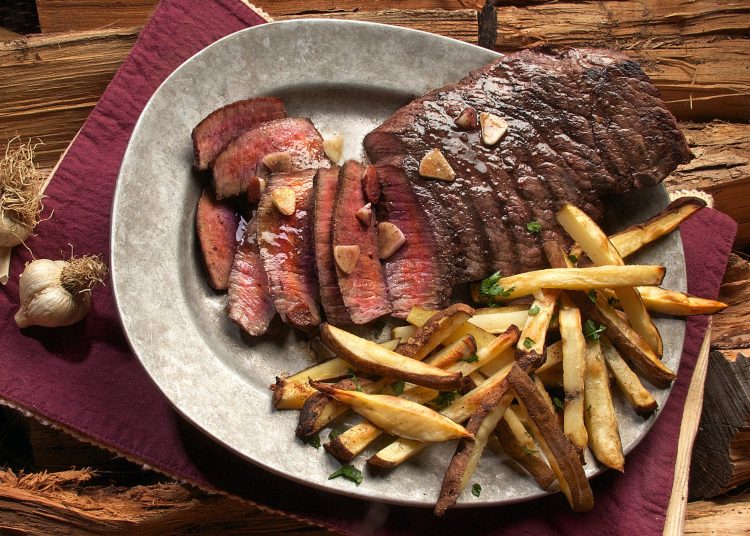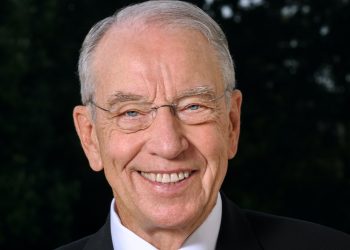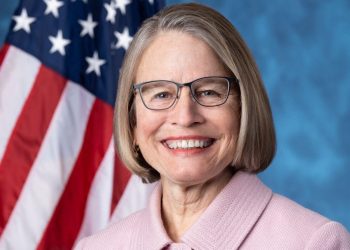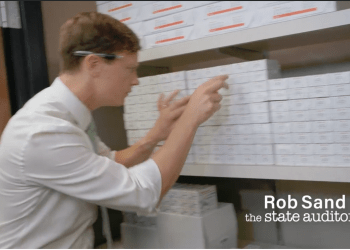It is my pleasure to celebrate the month of May as National Beef Month.
Iowa has the seventh largest cattle inventory in the U.S. and ranks fourth in the country for cattle and calves on feed.
While I usually focus on the need for a fair and transparent market for cattle producers, today I want to draw attention to the job that cattle producers across the country have of feeding the country and the world.
Over the last 30 years, the United States population has increased by 80 million people.
In that same time period, the world population has grown by around three billion people.
In the face of a growing population, farmers across the country have been faced with a challenging question. How do we meet a growing demand for food while also lowering our environmental footprint?
American farmers and ranchers have risen to the occasion. Farmers in all segments have expanded production to fulfill increasing demand while protecting our environment.
The United States is currently producing 80 percent more pork, 48 percent more milk and 18 percent more beef than 30 years ago.
Despite the increases in production, per-unit greenhouse gas emissions from pork production have decreased by 20 percent and 8 percent for beef production.
Nonetheless, environmentalists still place unwarranted blame on farmers for contributing to a changing climate.
The recent narrative that United States agriculture is a major contributor to greenhouse gas emissions is simply not true.
According to the EPA, only 11 percent of the United States’ greenhouse gas emissions come from agriculture.
The leading sources of greenhouse gas emissions contribute nearly twice as many emissions as the agricultural industry does.
Transportation contributes 27 percent, electricity 25 percent and general industry is at 24 percent.
It is time to set the record straight.
For the last 30 years, American farmers have been reducing greenhouse gas emissions with each meal served by embracing efficiency and adopting new technologies.
Agriculture needs to have a seat at the table for these conversations since farmers are the first conservationists and can help offset emissions from other sectors.
From creating carbon sinks on farmland to producing biofuels and turning farm waste into energy, farmers have taken an active role in reducing their environmental impact.
Research from USDA shows that even if the entire world was vegan it would lower global emissions by less than one-half of one percent while losing access to high-quality protein.
However, the facts I have mentioned do not matter to radical environmental groups or the mainstream media.
Articles on food sustainability often focus on how eating insects or bugs can help save the planet.
A simple search on the internet reveals some unsettling articles.
A headline from Time Magazine, “How Humans Eating Insects Could Help Save the Planet.”
From The Atlantic, “To Save the World, Eat Bugs.”
And from The New York Times, “Why Aren’t We Eating More Insects.”
All of these stories have a common thread.
To solve world hunger and protect the environment the American people and the world needs to eat bugs and insects.
But as I’ve laid out, you can just eat more beef and feel good about your environmental impact.
As for me, I’ll be doing my part in May to honor National Beef Month.
I will be eating juicy hamburgers or steak, if the price isn’t too outrageous.
I will be supporting cattlemen from Iowa who produce the highest quality beef in the world.
Farmers know firsthand the importance of a clean and healthy environment.
It is simply unfair to place the blame of a changing climate on the backs of farmers.
As a nation, we must stand with farmers across the country and work with them to promote a clean environment.
I will continue working at the policymaking tables to ensure our cattle producers can continue raising high-quality beef for generations to come and that families can enjoy it at their kitchen tables at prices they can afford.
Note: This op/ed is from Senate floor remarks U.S. Senator Grassley gave on Thursday.















